Fantastic Four: The MCU Finally Remembered How to Make a Phase 1 Movie Again
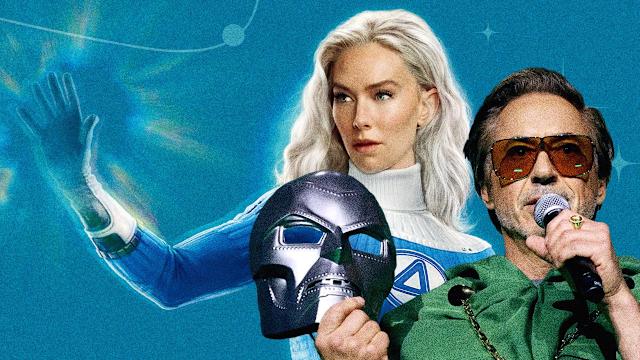 Yahoo is using AI to generate takeaways from this article. This means the info may not always match what's in the article. Reporting mistakes helps us improve the experience.Generate Key Takeaways
Yahoo is using AI to generate takeaways from this article. This means the info may not always match what's in the article. Reporting mistakes helps us improve the experience.Generate Key TakeawaysWarning: This piece contains full spoilers for The Fantastic Four: First Steps.
It’s been a long time coming, but the Fantastic Four finally have a good movie to their name. The Fantastic Four: First Steps may not be perfect, as IGN’s Clint Gage said in his 7/10 review, but it gets the fundamentals right: the Four themselves are well cast, the leads have great chemistry, Galactus actually looks and acts like his comics self, and the thematic throughline about the strength the FF derive from their familial connection–literalized by rallying both themselves and the world at large to save both the planet and Franklin from Galactus instead of giving in to the latter’s desire to claim Franklin in exchange for sparing Earth–captures the spirit of Stan Lee and Jack Kirby’s original source material.
But most of all, First Steps gives us something we haven’t seen from the MCU in a long time: a throwback to the Phase 1 way of doing things. First Steps isn’t interested in belaboring its runtime with shared universe subplots, nostalgic references, or multiversal cameos that distract from the story at hand, nor does it require doing any homework with other films or Disney+ series to wrap your head around the plot. You could watch First Steps with no previous MCU experience and come away with a solid movie that keeps the focus on its characters and the story it’s telling. Why does this feel like such a breath of fresh air for the MCU? Let’s take a look.
More From the Baxter Building
Fantastic Four: Ending Explained
The Fantastic Four’s H.E.R.B.I.E.: The Redemption of the Human Torch’s One-Time Replacement
The Fantastic Four That Almost Was
The Uncanny, Spectacular Story of Martin Goodman, the All-But-Forgotten Founder of Marvel Comics
Ranking the Fantastic Four Movies From Worst to Best
AdvertisementAdvertisement#_R_8pokr8lb2mav5ubsddbH1_ iframe AdvertisementAdvertisement#_R_gpokr8lb2mav5ubsddbH1_ iframeFantastic Focus
The most commendable aspect of Fantastic Four: First Steps is how little concern it has for the MCU as a franchise. It doesn’t go out of its way to contradict or circumvent the MCU in any way, but its goals are squarely in the realm of telling the most effective story it can. Like with this year’s Superman reboot, First Steps avoids depicting a full origin story for the Fantastic Four (although how the team got their powers is explained via a news montage early in the film), instead jumping in four years after the team’s founding on Earth-828 and centering around a threat to their status quo as superheroes. That threat comes in the form of Galactus, the Devourer of Worlds, and his herald, the Silver Surfer, both of whom mark a sizable shift in the type of antagonist this FF is used to facing.
This story really only needs seven characters to function: the FF, Reed and Sue’s newborn son Franklin, Galactus, and the Surfer. Everyone else is essentially window dressing, and there’s no previously required knowledge of either the comics or past MCU installments to make the story’s engine work. Director Matt Shakman and co. believe in the Fantastic Four and their slice of the Marvel Universe to be compelling enough on its face to hold up the entire film, instead of throwing in characters from other franchises or too many teases of major films yet to come. Given how often the MCU and other big budget series have fallen into the trap of shortchanging the film they’re making to advertise others down the line, seeing First Steps push back so hard against that trend is incredibly promising.
And it pays off dividends for First Steps, which is the first time in years that an MCU movie has felt like a proper full movie instead of just another MCU entry. After the avalanche of content in Phases 4 and 5 between theatrical films and both live-action and animated Disney+ series, it’s borderline impossible to keep track of everything that’s had the Marvel Studios name stamped onto it. General audiences have clearly struggled to keep up, with disappointing box office totals for both Captain America: Brave New World and Thunderbolts. But more so than the sheer glut of media to sort through is the feeling that so much of it is designed more to keep the MCU brand in the limelight instead of being worthwhile projects in their own right. Sure, First Steps is technically the start of Phase 6 (although what the Phases even mean anymore is anyone’s guess), but it works in spite of its franchise association and not because of it.
AdvertisementAdvertisement#_R_9dokr8lb2mav5ubsddbH1_ iframe AdvertisementAdvertisement#_R_hdokr8lb2mav5ubsddbH1_ iframeRanking the Fantastic Four Movies
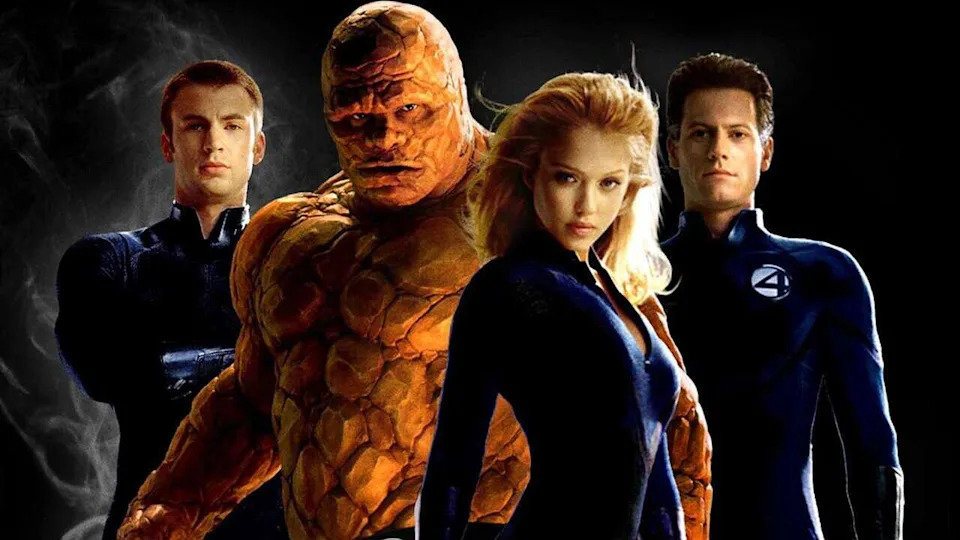 With Reed, Sue, Johnny, and Ben once again clobberin' their way into our hearts, we've decided to rank the four (yes, four) Fantastic Four movies that came before this. Where will The Fantastic Four: First Steps ultimately rank on this list? Well, we'll need to give that a little bit of time, so that everyone gets a chance to see it and also to sidestep any possible recency bias. We do know that our reviewer, Clint Gage, gave the film a 7 out of 10, saying it's a "family dramedy that only stops working when it tries to be too much of a superhero movie."
With Reed, Sue, Johnny, and Ben once again clobberin' their way into our hearts, we've decided to rank the four (yes, four) Fantastic Four movies that came before this. Where will The Fantastic Four: First Steps ultimately rank on this list? Well, we'll need to give that a little bit of time, so that everyone gets a chance to see it and also to sidestep any possible recency bias. We do know that our reviewer, Clint Gage, gave the film a 7 out of 10, saying it's a "family dramedy that only stops working when it tries to be too much of a superhero movie."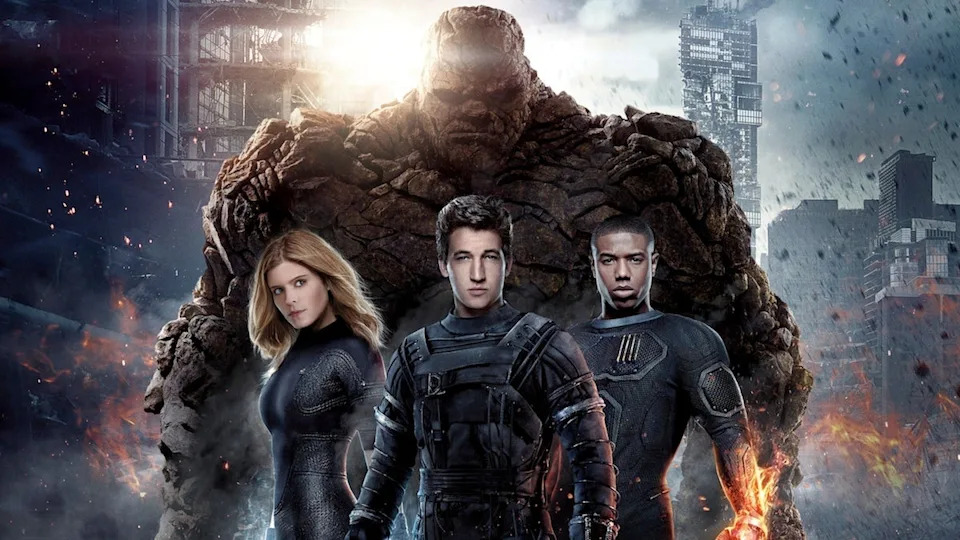 4. Fantastic Four (2015)
4. Fantastic Four (2015)Josh Trank's abysmal Fantastic Four movie was naturally going to come in dead last. It's a colossal misstep on just about every level, swapping out the family dynamic and cosmic camaraderie elements for humorless sci-fi slog. It all feels like stoic strangers sharing a nightmare, tweaking so much of the standard formula that it barely feels recognizable as a Fantastic Four movie. Miles Teller, Michael B. Jordan, Kate Mara, and Jamie Bell starred in a catastrophe that Trank himself even disavows, claiming that his version, a better version, of the film was buried by Fox, who then made their own theatrical cut. We'll have to take his word for it, but consider that just about anything would be better than this film.
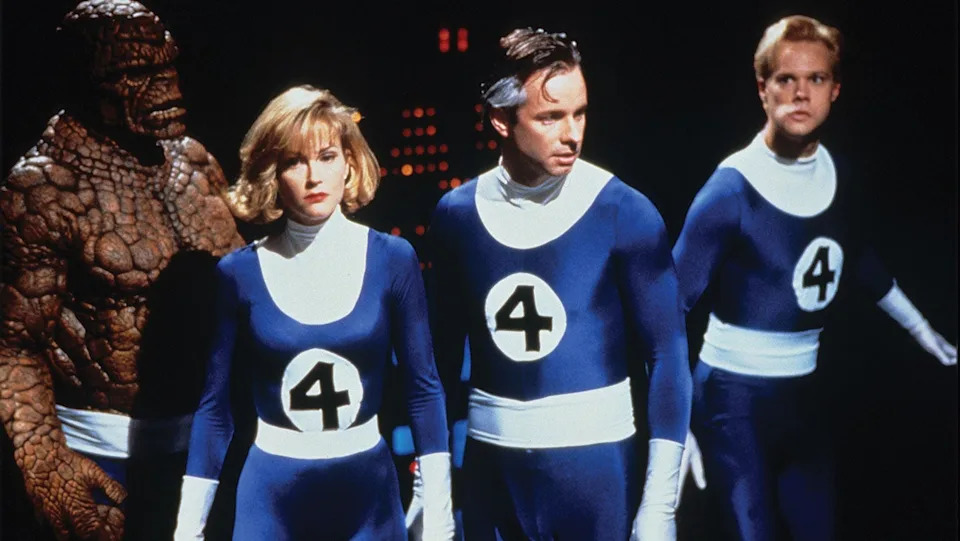 3. The Fantastic Four (1994)
3. The Fantastic Four (1994)Even though most everyone involved was tricked into thinking this movie would get a theatrical release, and even though indie cinema icon Roger Corman made it on a nothing budget, it's still an earnest, honest Fantastic Four movie. So it just so happens that an impressively faithful-to-the-material Fantastic flick, which was fated to be shelved, came about because producer Bernd Eichinger needed to make a movie to retain the superhero rights. Everyone looks the part down to their hairstyles; we even got the best, or at least most accurate, Dr. Doom to date. So aside from rubber costumes and shoddy effects, this film is eons better than the $120 million dollar fiasco listed at number four. It's worth noting that the actors from this movie -- Alex Hyde-White, Rebecca Staab, Jay Underwood, and Michael Bailey Smith -- all have small roles in The Fantastic Four: First Steps.
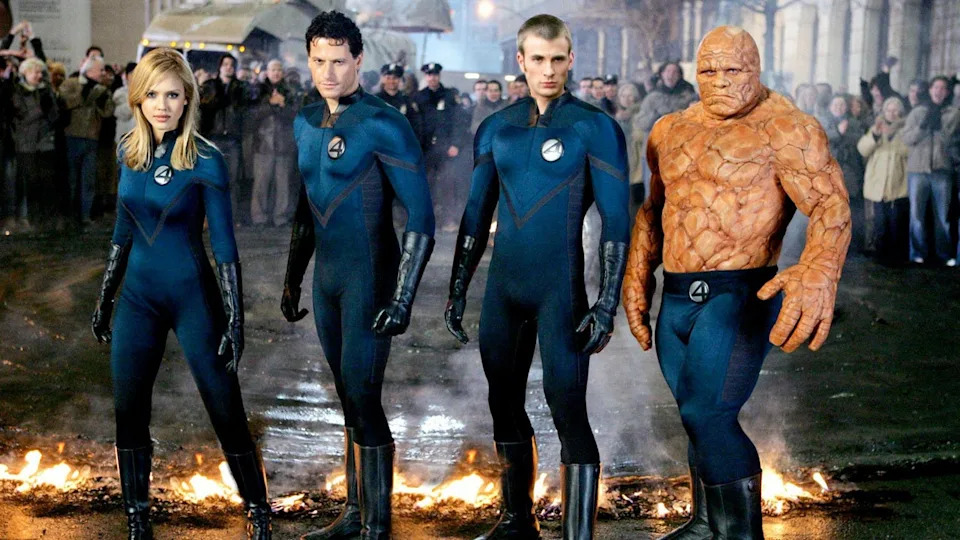 2. Fantastic Four (2005)
2. Fantastic Four (2005)The 2005 Tim Story Fantastic Four film is...fine. It gets the quartet right as characters for the most part and offers up a serviceable full-costumed Dr. Doom, albeit with a villain arc that feels very Norman Osborn-esque from 2002's Spider-Man. It's an origin story that spends two-thirds of the movie dealing with the Four's origin, though to be fair, no one was necessarily burned out on origins back in 2005 when Marvel franchises like Spider-Man and X-Men were still shiny and new. Where the movie is most lacking is in the third act, which falls flat as a climactic clash between our heroes and a rather low-blood sugar Doom. There's nothing drastically wrong about this movie, even with its tweaks, but it's also a rather unexciting outing. Still, it's because this movie was a modest hit that we actually had, briefly, a Fantastic Four franchise.
AdvertisementAdvertisement#_R_a5okr8lb2mav5ubsddbH1_ iframe AdvertisementAdvertisement#_R_i5okr8lb2mav5ubsddbH1_ iframe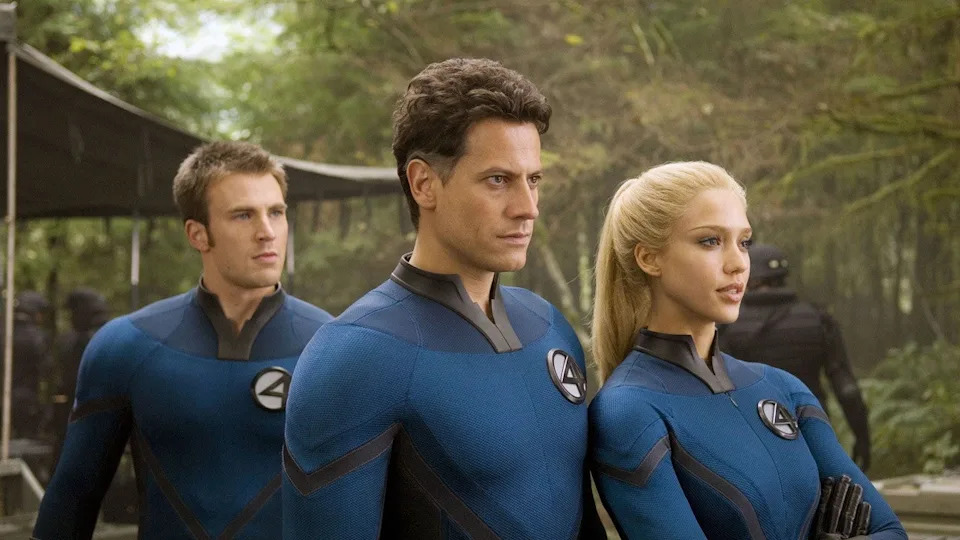 1. Fantastic Four: Rise of the Silver Surfer (2007)
1. Fantastic Four: Rise of the Silver Surfer (2007)Ioan Gruffudd, Jessica Alba, Chris Evans, and Michael Chiklis returned for this souped-up sequel, which allowed the Fantastic Four to exist as public-facing celebrity superheroes without having a lengthy origin story to bog things down. Aside from the new Phase 6 movie coming out, this is the only other Fantastic Four movie where we just get dropped into a lived-in FF universe where our heroes are beloved global champions. Sure, Rise of the Silver Surfer has Reed doing a silly, stretchy dance at his bachelor party, and it wasn't confident enough to give us Galactus as Galactus (he appears as a cloud, which was the way superhero movies solved adversaries for a long time - see also: Green Lantern, Dr. Strange, the Loki series, etc.), but it was also a better team adventure than the first film, even borrowing a bit from Superman II by having Dr. Doom remain as a secondary antagonist to the new cosmic threat.
The Phase 1 Glory Days
It can sometimes be hard to remember after so many MCU movies (First Steps is number 37 for those keeping score at home), but the first wave of origin films like Iron Man, Thor, and Captain America: The First Avenger all felt distinct and relatively self-contained. Sure, there were hints of a wider world outside the margins, and SHIELD was always around to reinforce that these movies existed in the same reality, but those films were primarily concerned with being good movies first and pieces of a bigger pie second. That’s why the MCU and their ensemble became so popular in the first place, but it’s something the series lost sight of after the Infinity Saga, with the post-Endgame slate suffering from many poorly conceived and absurdly priced misfires.
That’s not to say there weren’t some highlights from this era, like Spider-Man: No Way Home, Doctor Strange in the Multiverse of Madness, Loki, or X-Men ‘97. But there really is no denying that Marvel’s batting average went from “pretty good” in Phases 1 through 3 to “inconsistent at best” in Phases 4 and 5. A huge part of what went wrong was the studio developing a mentality that audiences fell in love with the Marvel Universe itself, instead of the stories and characters that made up that universe. Marvel often tried to patch their problems with adapting too many properties at once without a coherent plan and sliding quality control by doubling down on nostalgia and metatextual fanservice, which may work in the financial short term, but is exactly the kind of creative death spiral that’s resulted in Marvel’s once sterling reputation having long since been tarnished.
The heavy lifting the Phase 1 films did in terms of character development and audience investment was the catalyst that propelled The Avengers into the cultural stratosphere.
This makes Fantastic Four: First Steps’ back to basics narrative sensibility all the more remarkable. It proves that Marvel Studios is capable of curbing their worst tendencies and returning to the patient brick-laying that made their early efforts such a strong foundation to build the MCU on top of. The first Avengers film wasn’t a massive hit just because it had superheroes cross over; it had superheroes the audience already cared about crossing over. The heavy lifting the Phase 1 solo films did in terms of character development and audience investment was the catalyst that propelled The Avengers into the cultural stratosphere, and by extension the MCU into Hollywood dominance. If they want to get back there, taking their cues from what First Steps does would be a great, well… first step.
AdvertisementAdvertisement#_R_b5okr8lb2mav5ubsddbH1_ iframe AdvertisementAdvertisement#_R_j5okr8lb2mav5ubsddbH1_ iframeWhat Marvel Should Learn From Fantastic Four: First Steps
The most exciting moment in Fantastic Four: First Steps is when Shakman reveals that he knows Susan Storm is the most powerful member of the FF. During the final battle with Galactus, it seems the Devourer is going to get away with Franklin and subsequently consume the Earth… only for him to be held in place by Susan’s willpower through her force fields. She successfully manages to push him towards Reed’s teleportation device, salvaging a plan they thought had failed, and along with a little help from a repentant Silver Surfer, Susan forces Galactus through the portal to the far side of the universe after the rest of the team snatches Franklin back. Not only does it do justice to Susan from the comics, but it’s also a proper payoff to the emotional throughline the film had built for the team up to that point.
Earlier, the FF had to deal with most of the world wanting them to hand Franklin to Galactus to spare the planet. As Reed says, it makes “mathematical” sense, even if he insists to Susan he never considered doing it. The argument Reed and Susan have about Franklin, and her subsequent speech to the crowd outside the Baxter Building where she says she refuses to sacrifice Franklin to save the Earth but also refuses to “sacrifice the Earth to save my child,” is the film’s moral center. Susan, and by extension the entire Fantastic Four, are not the sort of heroes who make easy choices for the alleged “greater good.” They refuse to give Galactus anything, because it is not his right to demand a family be broken in exchange for cosmic mercy. The movie builds to this culmination through smart writing, performance and direction, and it’s all contained within this single film.
That is the sort of storytelling acumen that every MCU movie should have. Otherwise, why are you making them? Movies should not exist just to add extra toys to a sandbox or remind shareholders how much potentially lucrative IP you possess. These stories and characters have captured imaginations for decades because there’s something in them that connects with audiences on an emotional level, and the better MCU movies (of which we can now count First Steps) understand that. Sure, the post-credits scene has a faceless cameo of Doctor Doom, and his presence is teased a couple of times before that with empty “Latveria” seats at the United Nations. But that’s exactly what the teases are: tiny bonuses, not anything that intrudes on the main narrative. That Marvel is even capable of such restraint after debacles like Ant-Man and the Wasp: Quantumania or Deadpool & Wolverine is cause for celebration.
AdvertisementAdvertisement#_R_bpokr8lb2mav5ubsddbH1_ iframe AdvertisementAdvertisement#_R_jpokr8lb2mav5ubsddbH1_ iframeOn Earth-828, the Fantastic Four are a symbol of hope that the future will be safer and brighter. In our world, the Fantastic Four: First Steps is much the same, but that big franchise filmmaking, and Marvel Studios in particular, can get back to doing things right, instead of doing them easy.
Carlos Morales writes novels, articles and Mass Effect essays. You can follow his fixations on Twitter.







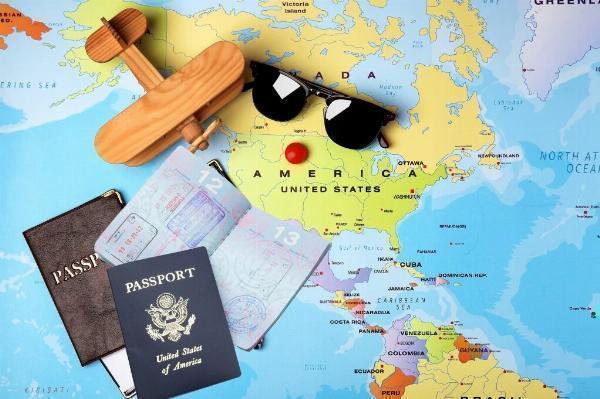


![How To Fix WordPress 403 Forbidden Error? [10 Easy Steps]](https://noticiasdecostarica.com/zb_users/upload/2025/07/20250728163532175369173238108.jpg)


